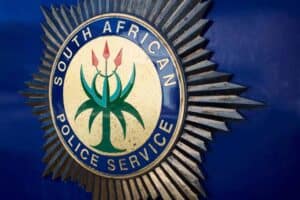As a regular driver, you are undoubtedly aware of what is and isn’t permitted on South African roads.

Keeping your vehicle on the left side of the road, stopping at red traffic lights, driving within the speed limit, and keeping your driver’s licence on you at all times are some of the rules drivers need to abide by when they get behind the wheel.
Most driving rules are based on common sense. But with so many new laws coming into effect and older regulations of the road that are still misunderstood, chances are you may have crossed the line several times without even realising it. Here are five traffic offences that could land you in hot water with the law.
Warning motorists of roadblocks
Police could charge drivers who alert fellow motorists about roadblocks by flashing their lights or posting warning messages on social media.
“We frown upon the practice of warning other motorists about roadblocks because, by doing that, you might be warning a wanted criminal, helping them evade the long arm of the law,” the Road Traffic Management Centre (RTMC) says.

.
Smoking in a car while transporting children
Do you regularly light up in the presence of children while driving? Section 2(1)(a)(iii) of the Tobacco Products Control Act, 1993 states that “No person may smoke any tobacco product in any motor vehicle when a child under the age of 12 years is present in that vehicle.”
The penalty for smoking in a car with minors could be as much as R500, according to the Act.
Transporting children in the back of a bakkie for money
A new law came into effect on 11 May 2017 that prohibits the transportation, for compensation, of schoolchildren in the goods compartment of a bakkie . The so-called “bakkie-taxis”, which are often the only way learners in informal areas are able to reach school, may no longer transport schoolchildren. Failure to comply could result in a fine of R2500 when the vehicle is confiscated, a R7000 fine to have the impounded vehicle released on first offence, a R10 000 fine to have the impounded vehicle released on second offence, and a R15 000 fine to have the impounded vehicle released on third offence.
Unlawful towing
Many motorists mistakenly assume that when they successfully complete their driver’s test, they are naturally allowed to tow. If you currently own an ordinary driver’s licence (Code B) you are actually permitted to tow only trailers lighter than 750 kilograms, which is more or less the weight of a small trailer. For anything bigger, such as a caravan, you need to be in possession of a Code EB licence.
Using a cellphone while driving
You may think that a few seconds is enough to safely take your eyes off the road and read a text message on your cellphone. However, that’s all it takes for disaster to happen. With the use of cellphones as a top cause of driver distraction, which can lead to accidents, the South African National Road Traffic Act has banned all activities that can be performed on a cellphone. Drivers who are caught using a cellphone while driving may be fined up to R750. In the Western Cape, this offence is punishable with a fine of R500 and having your cellphone confiscated, with an additional release fee of R1 140.

.
As a driver, it is your responsibility to keep your vehicle under control and create a safe driving environment for yourself and other road users. Not only will responsible driving habits keep you out of harm’s way and avoid prosecution, it will also keep you in good standing with your Car Insurance company.
An article, You May Be Liable For Another Driver’s Negligence, points out that this is important because insurance companies usually take into account the actions of all drivers involved in an accident to conclude who is liable for damages.






